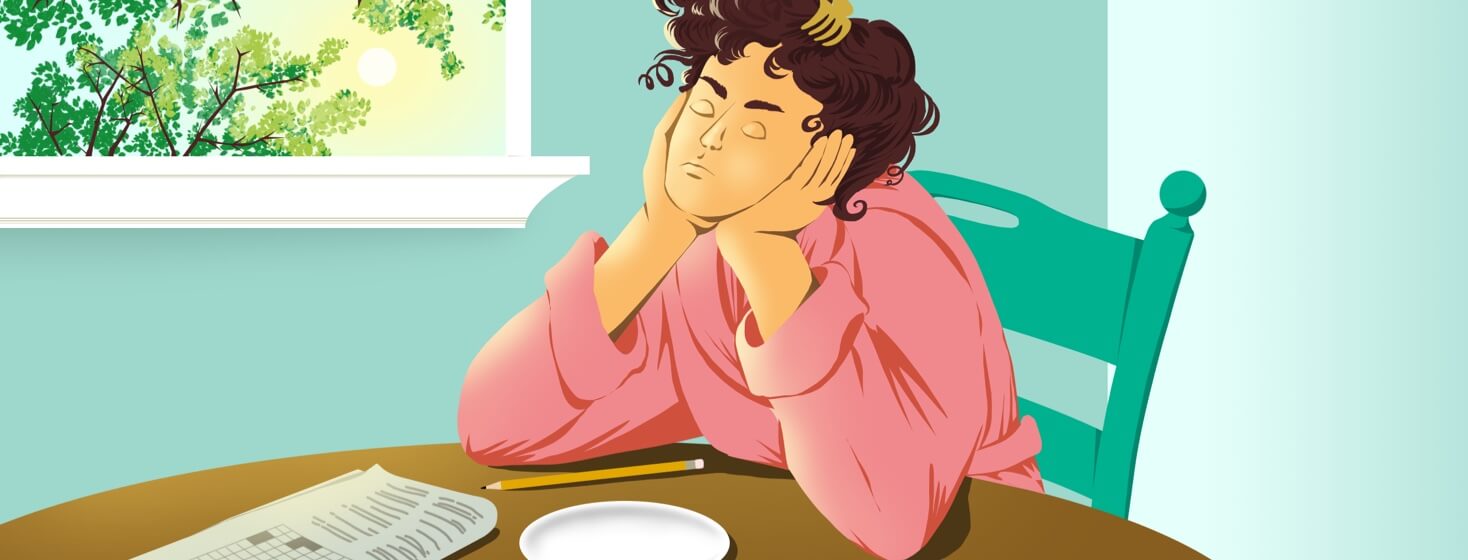The Mental Fatigue of Living with IBD
When I first began experiencing symptoms of IBD, I was distraught. Not only was I sicker than sick, but I was fatigued in a way that I had never experienced before. A way that was impossible to explain to others. Some days, I was too tired to think, let alone move, act and do.
I went from being an extremely active 23-year-old to basically homebound in a very quick turn of events.
In the last 12 years, I fought my way to diagnosis, an adequate treatment plan for my Crohn’s disease, and remission, and yet, one thing has remained - the sometimes debilitating fatigue.
The constant mental load of IBD
Yes, Crohn’s disease or ulcerative colitis can cause some fatigue on its own, simply from disease activity impacting your body around the clock. But recently, I realized it was so much more.
The mental load of living with IBD can feel insurmountable.
The number of thoughts I have had in a given day related to my body, my health, my disease, my medication, my insurance, my healthcare, and my future take up so much of my brain space that sometimes I wonder how in the world I get other things done.
How I function as a person, work as a doula, mother my toddler, maintain friendships, practice self-care, run a household and a business – all while constantly weighing the pieces of my life (every piece of my life) impacted by Crohn's disease.
This, friends, is the invisible mental load of living with a chronic illness.
The fatigue of always considering our illness
And sadly, I know that I'm not the only one who carries this. Most patients struggle with the physical and often mental fatigue of living with IBD because our illness isn't something we can put away, put down, or skip thinking about.
My Crohn's disease has been well controlled for the last 3 years, and yet, it still factors into nearly every thought I have.
Here's just a brief example of the running narrative in my head:
Oh, that's my alarm. I'm still so tired. I was up 3 times to go to the bathroom last night, and I struggled to fall back asleep each time. I'm just going to hit the snooze button. Oh, wait, I have to go to the bathroom. Right now!
Okay. Phew. I feel a little relief. I'm just going to get dressed and head downstairs. Oh, I must be bloated because these pants are too tight. Er, well not tight, but uncomfortable. How frustrating. I guess I'll wear a dress today.
I'm hungry. But also nauseous. I'm going to eat a protein bar. That shouldn't hurt my stomach too much. I have early meetings today, so I don't have much time to be visibly uncomfortable.
Please note, I have all of those thoughts before 7 a.m. on any given day. Can you relate?
Our IBD makes us tired in more ways than one
Of course, there's a mental load of living with IBD. It's ridiculously clear, now that I spell it out.
Sharing this feels really important to me as a longtime IBD patient and advocate because I want you to know you're not alone.
The mental fatigue, the burnout, the emotional exhaustion of living with IBD – it's a lot to manage on top of your physical symptoms, and the rest of your life. I hope you know this community is here to support you each step of the way.

Join the conversation